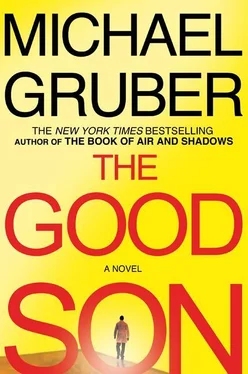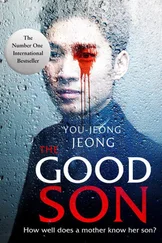“Bailey, you recall that nuclear-threat clambake we went to last summer?”
“Yes, sir.”
“Well, I hope it’s still fresh in your mind, because it happened.”
“No shit, sir? The terrorists have a bomb?”
“Maybe more than one. There’s a shit storm over this from the White House on down: every resource we got, balls to the wall.”
“Do we have a location?”
“As a matter of fact, we do, it’s Pakistan, and we’ve apparently got some intel that the things won’t be there for much longer, so everything’s moving very fast. We have a manifest call for twenty-hundred hours.”
“That’s impossible.”
“Tell me about it. But we’re going, ready or not.”
“Why us? There are all kinds of resources deployed downrange.”
“You’re why, my son, which was why we were going fucking crazy that you were off on leave. You remember that conversation we had in the car coming back from the conference? About how to handle a live nuke situation?”
“Yeah, I do. Don’t tell me. I just volunteered for a dangerous solo mission.”
“That’s right. And now you and me are going to firm it up so it’s not total amateur hour, and then we’re going to go down the hall to Colonel Boone and present it to him and the battalion staff, and God have mercy on our souls.”
So we firmed it up. Every army plan is the same, whether it’s a platoon sergeant taking a strongpoint or a general leading an invasion: intelligence, operations, supplies, and communications, all laid out according to a fixed form. We had plenty of intel about this place, Paidara, which turned out to be a village of about a thousand people, high up a side valley of the Swat River, one little track going up to it, maybe a hundred buildings, a mosque, an inn; the Taliban were in complete control. We had close-up photographs of every building in town, natural light and infrared. One building in particular stood out on the infrared. It was unusually hot, and there was a big diesel generator outside it. They figured that was the bomb factory, which was a lucky break for me, something that gave a little extra credibility to my scam. For all I knew it was a place they were manufacturing weapons-half the villages in Taliban areas have shops like that-and I nodded and agreed it would be the first place to check out. Aside from that the operation was simple: insert one troop (me) in disguise. For supplies, I’d have a radio beacon and the usual weapons. If I couldn’t actually get to the imaginary bomb I would secure the beacon at the building it was in, which would then be targeted from the air, with a really, really big piece of ordnance, reducing the nuke to tiny fragments and rendering the place uninhabitable for a thousand years, but tough shit on them. Before that, I was to get out and they’d send a chopper. On the other hand, if I secured the bomb, I’d contact by radio and the village would be taken by assault. Since the nuke was fictitious, that’s the button I was going to push, right after I had my mother.
We tapped the whole thing out on Captain Stolz’s computer, and one of our guys made a PowerPoint out of it, and we tweaked it right up to the time we had to go see Lieutenant Colonel Boone. Sergeants usually don’t go to these officer briefings where our fates are decided by people smarter than we are, so I was pretty interested, and I thought it was kind of cool for them to invite me, my first and last officer briefing. Because obviously they were not going to find a bomb when they got to the beacon, only a slightly confused middle-aged American woman, who would tell them all about the scheme her son had devised that had brought them to this obscure place. The son by that time would be long gone, back into the hills, heading for wherever.
That’s what I was thinking while the briefing was going on, and I was thinking also about the strange gravity of American soldiers, how isolated they are from their own society, where death is ignored or, when it comes, gets treated like an unfortunate mistake, or sentimentally, with the candles, the ribbons, the teddy bears, and how they struggle to make war safe for their guys, like it was pro football or something. And the heaviness of their wit, their American joshing, the sports talk, so different from that of my grandfather and his friends or my Pashtuns. They are terrific men; I admired them, but right there in that meeting I understood that I was not and never would be like that. I would never be easy with such men, nor they with me, and my American self sort of dribbled away. I looked out at the meeting through Pashtun eyes and felt like the oldest man in the room.
Forty hours after that I was the sole payload of an MC-130P Combat Shadow aircraft flying at twenty-two thousand feet over the Hindu Kush toward the Swat Valley. They’d decided on a HALO insert rather than trying to get me in by chopper because you never could tell when some goatherd might decide to take a leak in the middle of the night and see or hear the thing and raise an alarm. A couple of years back we’d lost a Chinook and sixteen men on a mission that way, and they didn’t want to take any chance of the same thing happening on this one, especially not with that unique asset, me. I was feeling a little sausage-like because I had my Pashtun outfit on and over that a jumpsuit, and over that a heated suit. The crew chief let me know we were a half hour off the drop point, and I laid out my stuff and gave it the final check. I had an altimeter and a GPS that would clip to the front of my jumpsuit and I had my special beacon, a CIA unit that was rigged to look like a cheap Chinese portable radio, and it worked as a regular two-way radio in case I needed it. I had a big Pashtun knife, and my Stechkin too, and I cleaned and loaded that in the plane’s red light.
Then my ears started popping, because the plane was descending, fast but carefully between the walls of the Swat Valley, which are around fifteen thousand feet high. We got the five-minute light from the flight deck. I stood up, switched to my portable oxygen bottle, put on my helmet, and attached my rucksack to the chute harness with a cord. I held the rucksack to my belly and clumped down the aisle of the plane. The rear clamshell opened, letting in the chill and the roar of the wind. The crew chief grabbed my shoulder hard and let go and I gave him the thumbs-up. In the red light he looked like a demon worried about the existence of goodness and I grinned at him, looking myself, I guess, like a more enterprising one. I walked past the line where you weren’t supposed to go unless you were in a safety harness, and when the light next to the door turned from amber to green I stepped out into the clouds.

I love doing this, I have to say. I’ve loved it since my first jump at Benning years ago, and I guess a month hasn’t gone by since then that I haven’t jumped out of an airplane, either at work or for fun. This particular jump was a high-altitude, low-opening jump, which means that I dropped free fall for a mile through cloudy damp freezing darkness, completely opaque, no light at all except the tiny glow from my instruments. It was like falling through the sea at the bottom of the ocean. It wasn’t like a sky dive for amusement, where you can horse around in the air, but it had its own appeal, a jump like that you know you’re really alive, you inhabit your skin the way you don’t do any other way I know, sex maybe excepted.
Since it was a drop into mountains, I had to watch the altimeter and the GPS all the way down so that I would land in a flat place-a more or less flat place-in the Swat Valley and not on some rock, because altimeters work by measuring air pressure. It was going to give me distance above sea level but not distance above the random mountain, so it was dangerous as hell, but strangely enough I felt no fear at all. I was in the zone. I had the perfect confidence of the fanatic, and I thought of Ghalib’s lines:
Читать дальше













